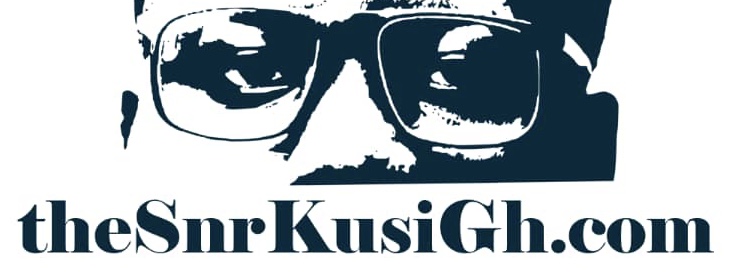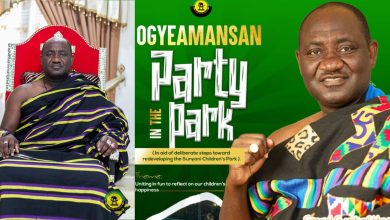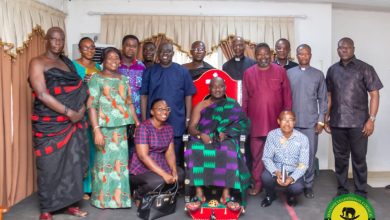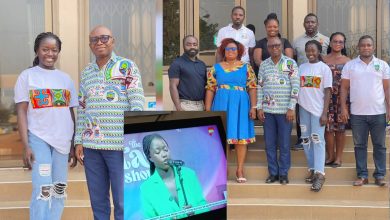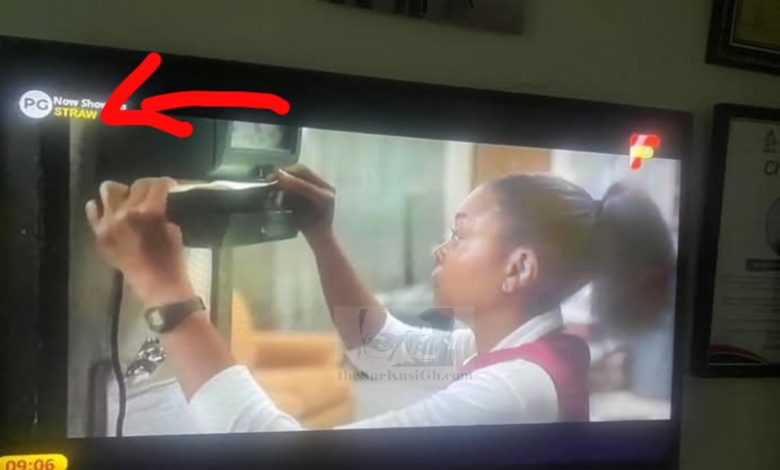
There’s a new blockbuster in town, and no, it’s not on Netflix or showing at the Silverbird Cinemas. It’s airing for free on your favorite Ghanaian TV station, barely few days after its global release. Yes, you read that right. Some Ghanaian TV networks have taken “cutting corners” to a whole new cinematic level.
It all came to a boiling point recently when one of the fastest-growing private TV stations in Kumasi (name withheld for comic protection) aired Tyler Perry’s latest Netflix film, “STRAW,” just six days after its global release. Six days!
The rest of the world is paying subscriptions to stream it, and we’re watching it with jollof and a side of ‘Chofi’ ne chilled ‘Eagle Black’ baako.
But this isn’t an isolated case. Nigerian filmmakers have been ranting about this disturbing trend for quitea while now. Their new films are barely out of the YouTube oven when our local stations snatch, stream, and serve them smoking Hot.
Directors like Kunle Afolayan, Ruth Kadiri, and IROKOtv, have openly expressed their frustration.
Now let’s unpack the danger in this bootleg buffet. Someone invests in creating content, negotiates a deal with Netflix or Amazon Prime or YouTube, markets it globally, and then—bam!—a Ghanaian TV station hits “Ctrl+S” and serves it up for free on national TV. How do we, as an industry, expect to court platforms like Netflix to support Ghanaian stories, when we’re out here robbing them of their revenue?
Imagine Jeffery Nortey walks into a Netflix office hoping to pitch a powerful local drama about identity, culture, and resilience. Netflix executives smile, then pull up a report: “Isn’t this the same country where a TV station pirated our Tyler Perry release less than a week in? Hmm… interesting.” Cue awkward silence.
There goes his funding, (and eno be ‘Lil Pui’ and Geovani Caleb demma fault), internationalosure, and that chance to put Ghana on the creative map.
The more we continue this disrespectful trend, the less willing global platforms will be to work with us. Why invest in a region where copyright is treated like a mere suggestion, and intellectual property is as unsecured as an Android phone with no password?
Let’s not even start with the legal implications. (I may dedicate that to another write-up if I get ink)
What hurts the most is how this affects our own industry. When the few steps forward are met with two steps back by our very own broadcasters, the whole industry begins to feel like a treadmill set on reverse. Hmm, asɛm o.
In the end, if we don’t treat creative property with the reverence it deserves, we will soon find ourselves shut out from international partnerships, losing our best storytellers to greener pastures and worse, feeding our audiences with twi speaking Indains, Mexicans and Philippines.
Anyway… me ink asa!
Snr. Kwame Kusi
